The Impact of Artificial Intelligence with Examples of Human Replacement by AI
Are you curious about the impact of artificial intelligence (AI) on various industries? From manufacturing to healthcare, finance to journalism, and even transportation, AI is rapidly transforming the way we work and live.
In this article, we will explore how AI is replacing human workers in manufacturing, taking over diagnostic tasks in healthcare, playing a crucial role in investment management in finance, providing customer service through chatbots, automating news writing and fact-checking in journalism, and paving the way for autonomous driving.
As an expert in the field of AI, I will offer valuable insights into these topics and help you understand how this technology is shaping our future. So sit back and get ready to learn about the exciting world of AI!
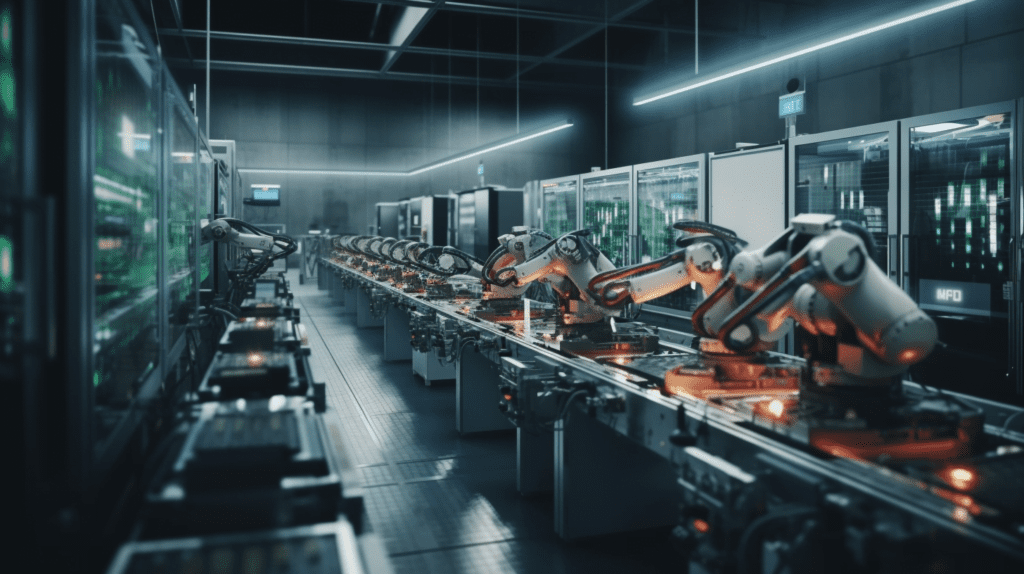
Automation in Manufacturing: How the Impact of Artificial Intelligence is Replacing Human Workers
Automation in manufacturing has been a game-changer for the industry, with AI taking over many tasks that were previously done by human workers. This shift towards automation has allowed manufacturers to increase production efficiency and reduce costs, while also improving product quality and consistency.
One example of this is the use of robots in assembly lines. These machines can work around the clock without getting tired or making mistakes, allowing manufacturers to produce goods at a much faster rate than before.
Additionally, AI-powered sensors can detect defects in products during the manufacturing process, reducing waste and ensuring that only high-quality items make it to market.
While some may worry about the impact of automation on jobs, it’s important to note that AI is not replacing humans entirely. Instead, it’s allowing workers to focus on more complex tasks that require creativity and problem-solving skills. By taking care of repetitive or dangerous tasks, AI is helping to create safer and more fulfilling work environments for employees.
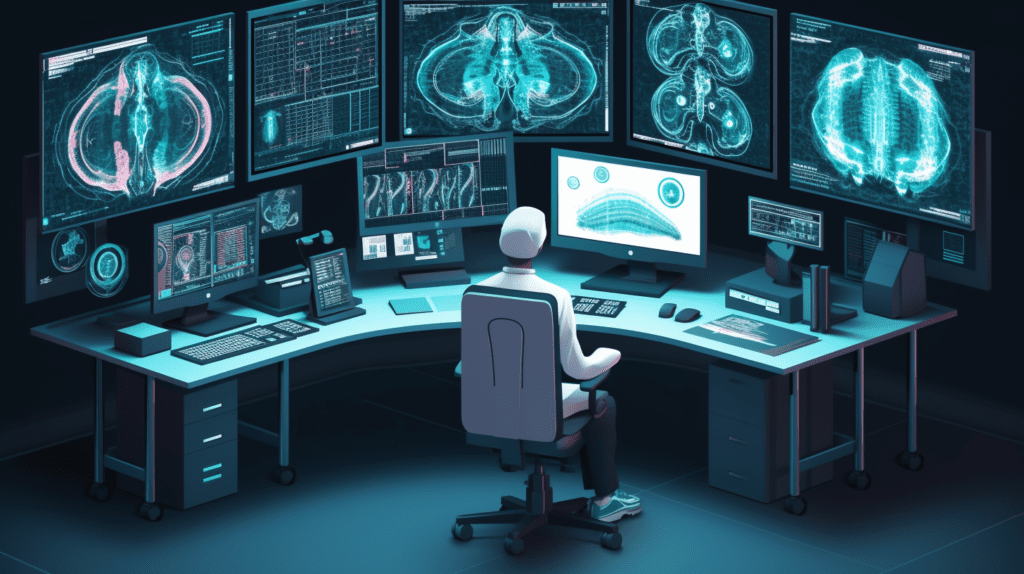
AI in Healthcare: How Machines are Taking Over Diagnostic Tasks
AI in healthcare is revolutionizing the way we diagnose and treat diseases. With the help of machine learning algorithms, computers are now able to analyze vast amounts of medical data and provide accurate diagnoses faster than ever before. This has led to a significant reduction in human error and improved patient outcomes.
One example of AI replacing humans in healthcare is the use of computer-aided detection (CAD) systems for mammography. These systems can detect breast cancer with a high degree of accuracy, reducing the need for human radiologists to review every image. This not only saves time but also ensures that no abnormalities are missed, leading to earlier detection and treatment.
Another area where AI is making a big impact is in pathology. Pathologists traditionally examine tissue samples under a microscope to diagnose diseases such as cancer. However, this process can be time-consuming and prone to errors. Now, AI-powered tools can analyze digital images of tissue samples and provide accurate diagnoses in a fraction of the time it would take a human pathologist.
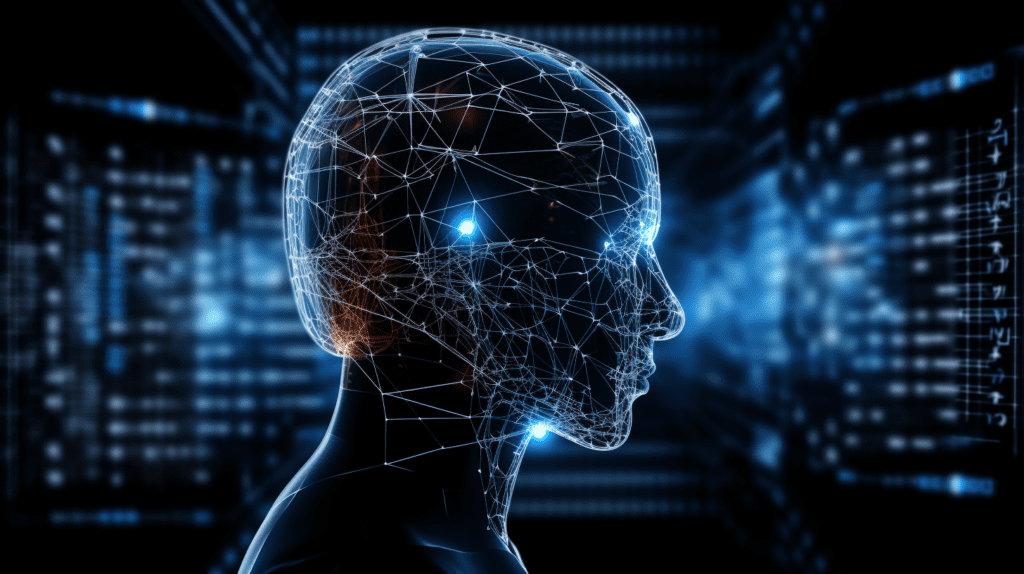
AI in Finance: The Role of Algorithms in Investment Management
AI has revolutionized the finance industry by introducing algorithms that can analyze vast amounts of data and make investment decisions with greater accuracy than humans. These algorithms are designed to identify patterns in market trends, predict future performance, and adjust portfolios accordingly. As a result, many financial institutions have turned to AI-powered investment management systems to improve their returns and reduce risk.
One of the key advantages of using AI in finance is its ability to process large volumes of data quickly and accurately. This allows investment managers to make informed decisions based on real-time information, rather than relying on outdated or incomplete data. Additionally, AI algorithms can learn from past performance and adjust their strategies accordingly, making them more effective over time.
However, there are also concerns about the impact of AI on the finance industry. Some experts worry that reliance on algorithms could lead to a lack of human oversight and accountability, potentially leading to unintended consequences or even financial crises. Others argue that AI could exacerbate existing inequalities in the industry by favoring those with access to advanced technology or data.
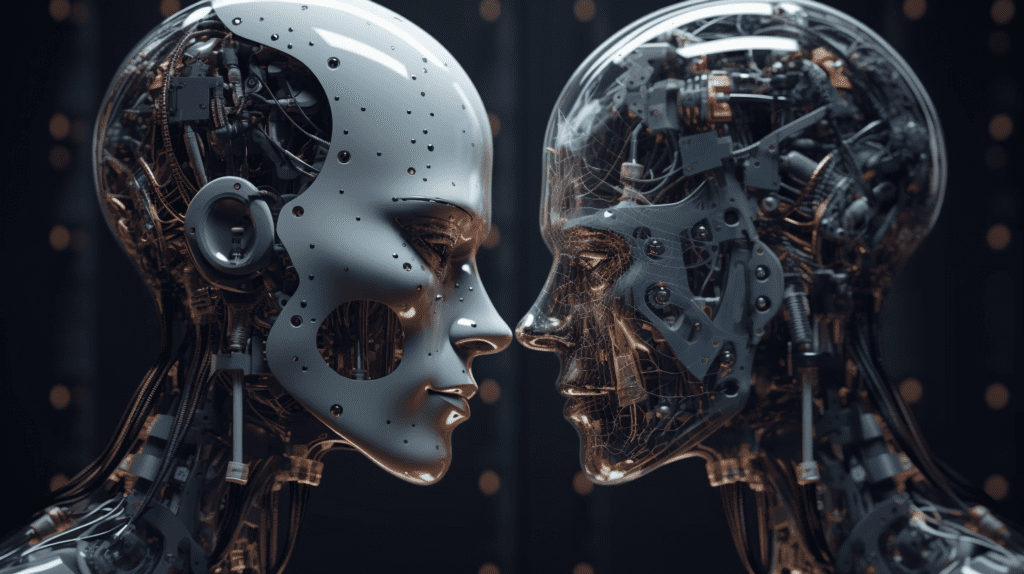
Chatbots and Customer Service: The Rise of AI Support
The use of chatbots in customer service has become increasingly popular in recent years. These AI-powered tools are designed to interact with customers, answer their questions, and provide assistance without the need for human intervention. Chatbots can be found on websites, social media platforms, and messaging apps, providing 24/7 support to customers around the clock.
One of the main advantages of using chatbots in customer service is their ability to handle a large volume of inquiries simultaneously. Unlike human agents who can only handle one conversation at a time, chatbots can engage with multiple customers at once, reducing wait times and improving overall efficiency. Additionally, chatbots can be programmed to learn from previous interactions and improve their responses over time.
While some may argue that chatbots lack the personal touch of human interaction, many customers actually prefer interacting with chatbots due to their speed and convenience. In fact, studies have shown that 64% of consumers believe that 24-hour service is the best feature of chatbots. As technology continues to advance, it’s likely that we’ll see even more sophisticated chatbot systems emerge in the future.
The Impact of AI on Journalism: Automated News Writing and Fact-Checking
As technology continues to advance, the impact of AI on journalism is becoming increasingly evident. Automated news writing and fact-checking are two areas where AI has already replaced humans to a certain extent.
Automated news writing involves using algorithms to generate news articles without human intervention. This technology has been around for several years now and is being used by many media organizations to produce large volumes of content quickly and efficiently. While automated news writing can be useful in breaking news situations, it lacks the depth and nuance that human reporters bring to their work.
Fact-checking is another area where AI is making its presence felt in journalism. With the rise of fake news and misinformation, fact-checking has become more important than ever before. AI-powered tools can help journalists verify information quickly and accurately, saving them time and effort. However, these tools are not foolproof and still require human oversight to ensure that the facts are correct.
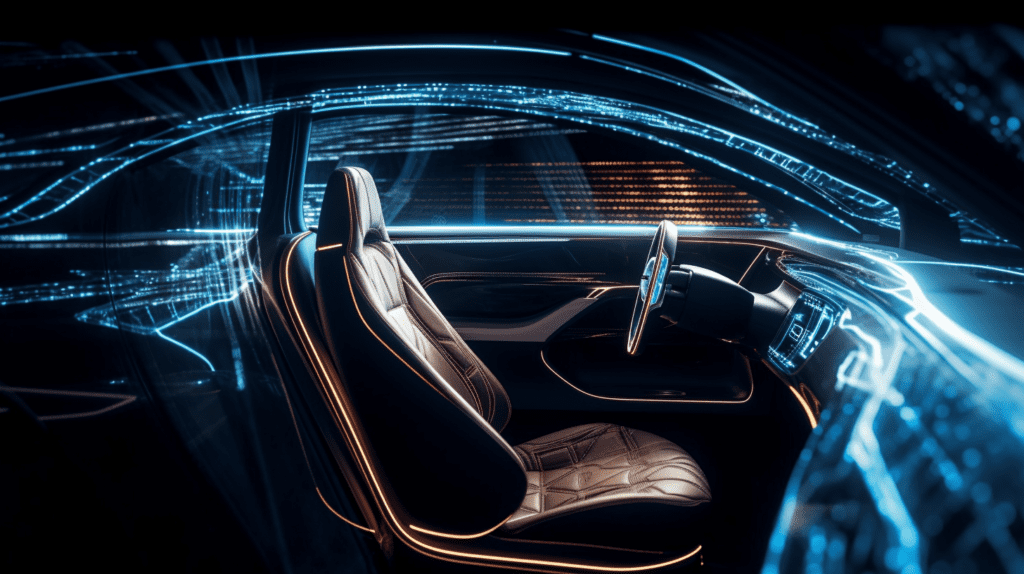
Autonomous Driving: The Future of Transportation
Autonomous driving is one of the most exciting and promising applications of AI. Self-driving cars have been in development for several years, and they are already being tested on public roads in some countries. The potential benefits of autonomous driving are numerous, including increased safety, reduced traffic congestion, and improved mobility for people who cannot drive themselves.
One of the main advantages of self-driving cars is their ability to reduce accidents caused by human error. According to the World Health Organization, road traffic injuries are the leading cause of death among young people aged 15-29 years. Autonomous vehicles can eliminate many of the common causes of accidents, such as distracted driving, speeding, and drunk driving.
In addition to improving safety, self-driving cars can also reduce traffic congestion by optimizing routes and reducing the number of vehicles on the road. This could lead to significant time savings for commuters and businesses that rely on transportation. Furthermore, autonomous vehicles could provide a new level of mobility for people who cannot drive themselves due to age or disability.